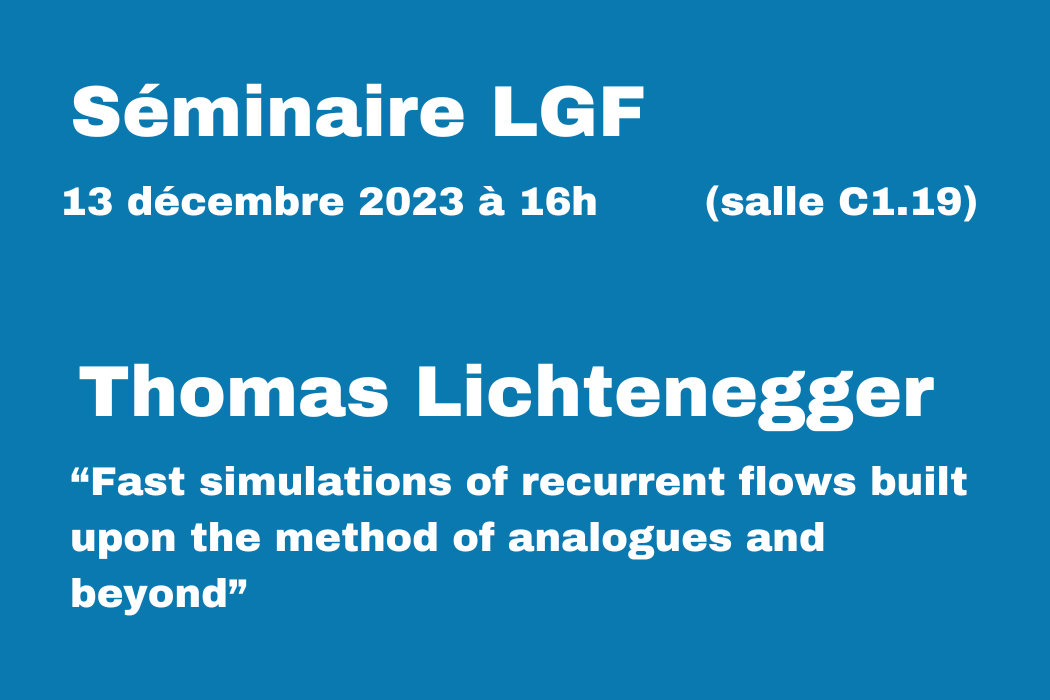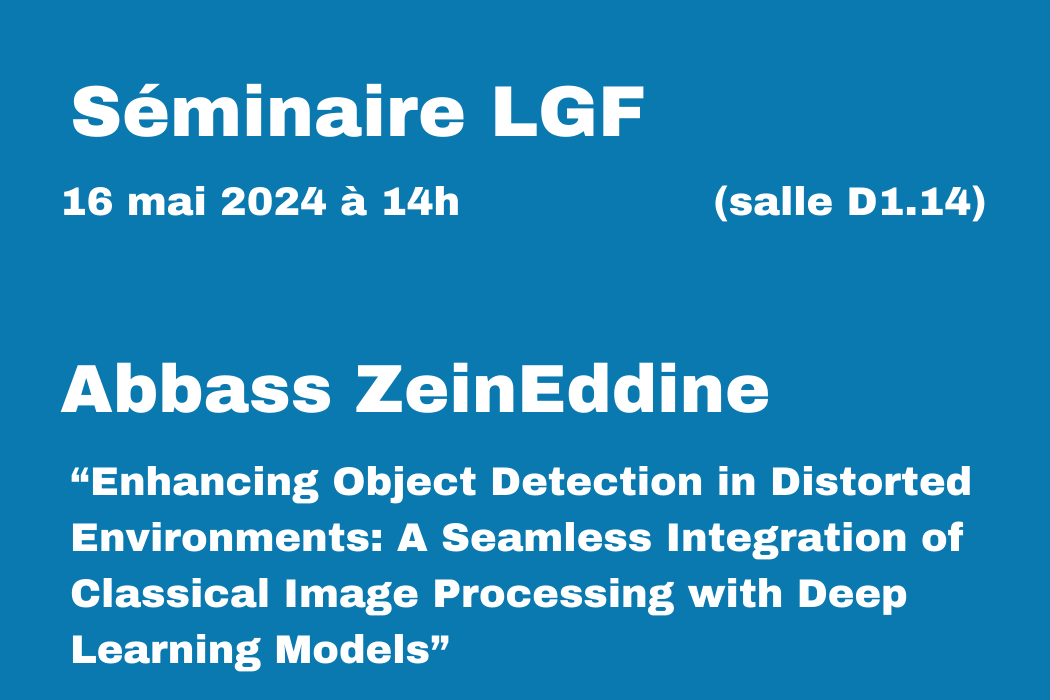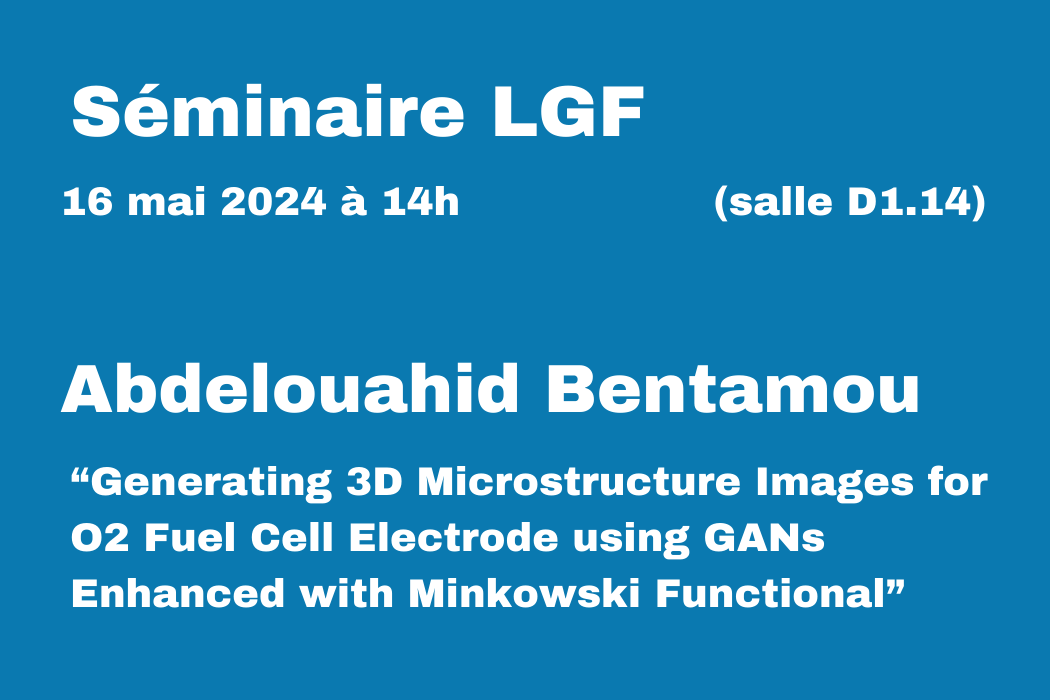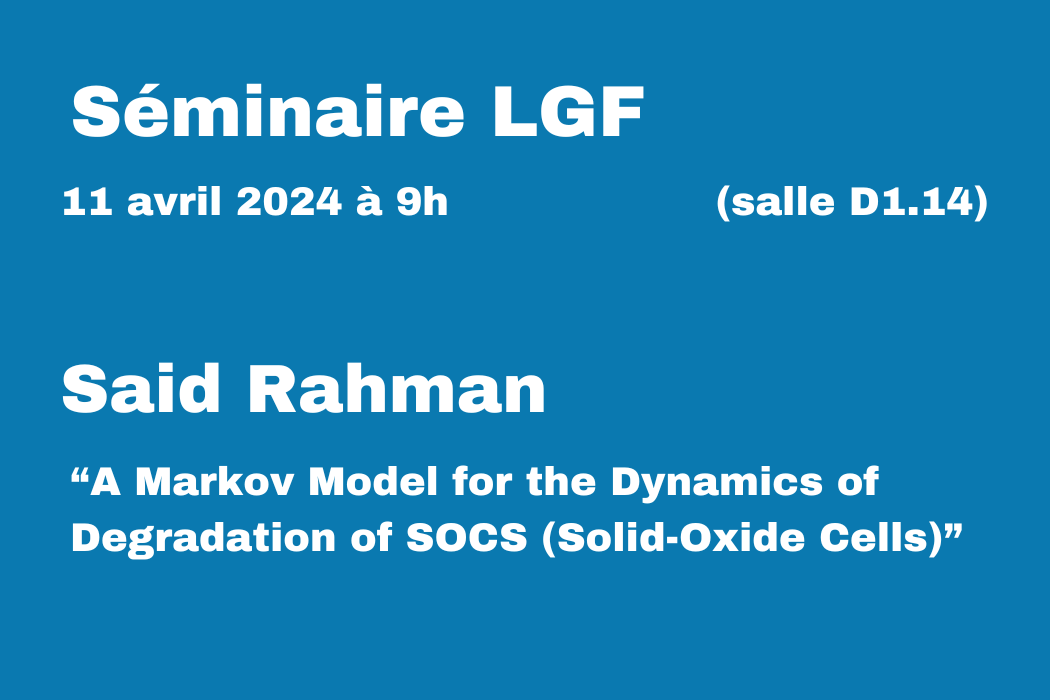Intitulé Enhancing Object Detection in Distorted Environments: A Seamless Integration of Classical Image Processing with…
Séminaire LGF – Thomas Lichtenegger (Johannes Kepler Universität Linz, Autriche) – 13 décembre 2023

Thomas Lichtenegger (Johannes Kepler Universität Linz, Autriche) est en visite dans notre laboratoire. A cette occasion, il délivrera le séminaire suivant.
Intitulé
Fast simulations of recurrent flows built upon the method of analogues and beyond
Résumé
Various dynamic flows such as bubble columns or fluidized particle beds are characterized by recurring patterns, i.e. flow structures that reappear either in an approximately periodic or in a completely irregular fashion. Using a prerecorded database of flow field time series and a corresponding recurrence plot, one can iteratively predict the behavior of such a system at little numerical costs by assuming that sufficiently similar states evolve almost identically for a short duration. On top of such a time-extrapolated series of flow fields, passive or weakly coupled processes like species or heat transport and transfer between phases can be simulated with speed ups of more than two orders of magnitude compared to the underlying CFD-DEM simulations. This opens the door to investigate temporal multi-scale problems over long process durations, e.g. slow heat transfer or chemical conversion on highly dynamic backgrounds.
Future developments will take into account the deviation between a state for which a forecast is made and its nearest neighbor in the database so that transient problems evolving away from the database can be described systematically. Ultimately, this kind of data-assisted simulation might be sufficiently fast and flexible to create virtual twins of industrial processes to optimize or control them.
Biographie
Thomas Lichtenegger studied Technical Physics at the Johannes Kepler University (JKU), Linz, Austria and earned his PhD on many-body quantum physics in 2013. After continuing his research as a Postdoc at the University at Buffalo, New York, he joined the Department of Particulate Flow Modelling at JKU as a Senior Scientist and switched his focus to computational physics and engineering of granular multiphase flows. He is particularly interested in data-assisted high-performance methods for temporal multi-scale problems found in fluidized and moving bed reactors.



